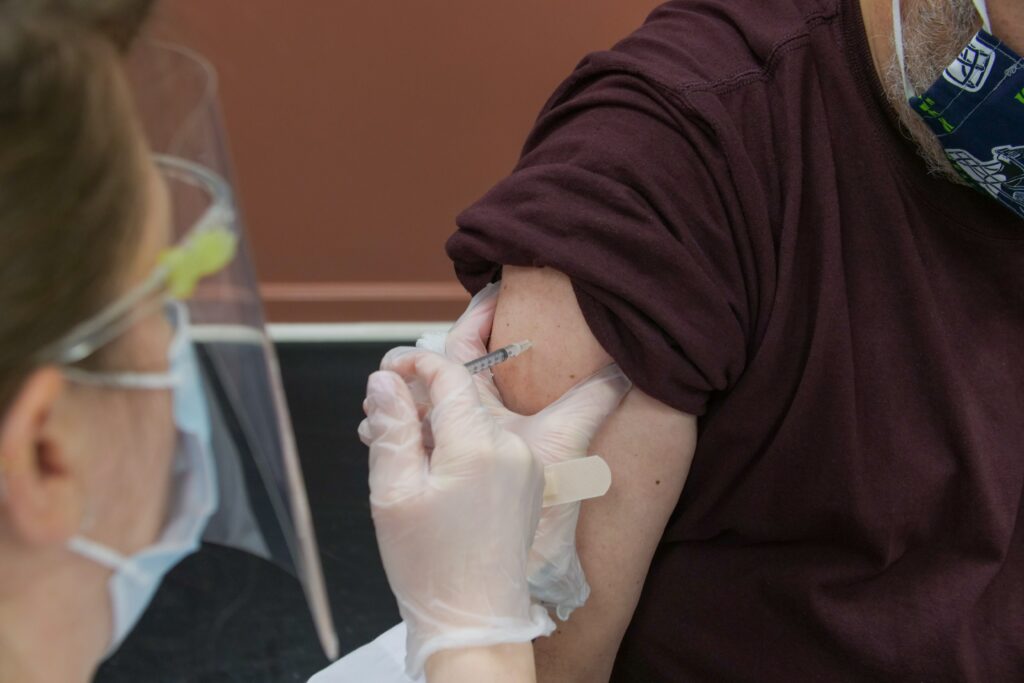Employment Law Report
Update On Challenges to Governmental Vaccine Mandates

By: Mitzi D. Wyrick
OSHA ETS Challenges. The Occupational Health and Safety Administration (OSHA) is facing an onslaught of challenges to its recently-announced Emergency Temporary Standard (ETS), which requires employers to adopt a mandatory vaccination or testing policy. At least 27 states (Alabama, Alaska, Arizona, Arkansas, Florida, Georgia, Idaho, Indiana, Iowa, Kansas, Kentucky, Louisiana, Mississippi, Missouri, Montana, Nebraska, New Hampshire, North Dakota, Ohio, Oklahoma, South Carolina, South Dakota, Tennessee, Texas, Utah, West Virginia, Wyoming) have challenged the ETS in various federal circuits. In addition, a wide variety of trade associations and private employers, representing construction, retail, trucking, small business, supermarkets, staffing agencies, restaurants, manufacturers, and religious institutions have filed suit to prohibit the ETS from going into effect. The Fifth Circuit Court of Appeals has issued a stay prohibiting OSHA from enforcing the ETS while it is under review because “the petitions give cause to believe there are grave statutory and constitutional issues with the mandate.”
The challenges will be consolidated and decided by a single U.S. Court of Appeals, which will be determined by a lottery. In what appears to be a strategic move designed to increase the chances that the ETS will be upheld, several unions filed lawsuits in circuits where the ETS had not yet been challenged, arguing that the standard fails to adequately protect all workers who face a grave danger from COVID-19 exposure in the workplace.
As it stands now, challenges to the OSHA ETS have been filed in eleven of the twelve federal circuits. The lottery is expected to take place on November 16th.
Federal Contractor Mandate Challenges. Six cases involving at least twenty-five states (Alabama, Alaska, Arkansas, Florida, Georgia, Idaho, Indiana, Iowa, Kansas, Kentucky, Louisiana, Mississippi, Missouri, Montana, Nebraska, New Hampshire, North Dakota, Ohio, South Carolina, South Dakota, Tennessee, Texas, Utah, West Virginia, and Wyoming) have been filed to challenge Executive Order 14042, which mandates vaccination of employees of federal contractors. The states have argued that the Biden Administration lacks the authority to require vaccinations and that such mandates violate the U.S. Constitution. Motions for preliminary injunction have been filed in at least four cases, but no injunction has been issued.
While E.O. 14042 has not been enjoined and remains in effect, a Fact Sheet was issued extending the deadline for covered employees to receive their final vaccination dose to January 4th to coincide with the deadlines for compliance with the OSHA ETS and the CMS mandate for health care employees. The Safer Federal Workforce Task Force COVID-19 Workplace Safety: Guidance for Federal Contractors and Subcontractors is likely to be updated to reflect this change in the near future.
In addition, the updated FAQs indicate that federal contractors have flexibility to go beyond that deadline to review requests for medical and religious exemptions. For employees who refuse vaccination, a period of “counseling and education, followed by additional disciplinary measures” may be necessary. The FAQs note that employees “should not be placed on administrative leave” during the period prior to termination but must follow the safety protocols for employees who are not fully vaccinated “when reporting to agency worksites.”
CMS Healthcare Mandate Challenges. Ten states (Alaska, Arkansas, Iowa, Kansas, Missouri, Nebraska, New Hampshire, North Dakota, South Dakota, and Wyoming) have filed suit challenging the Centers for Medicare and & Medicaid Services (CMS) requirement that health care workers be vaccinated against COVID-19 as unconstitutional. Other states, including Indiana, Louisiana, and Mississippi, have announced that they too will challenge the CMS vaccine mandate. The states have argued that CMS lacks the authority to implement the mandate and that the requirement will exacerbate the shortage of health care workers. No stay has been issued and the mandate remains in effect.
